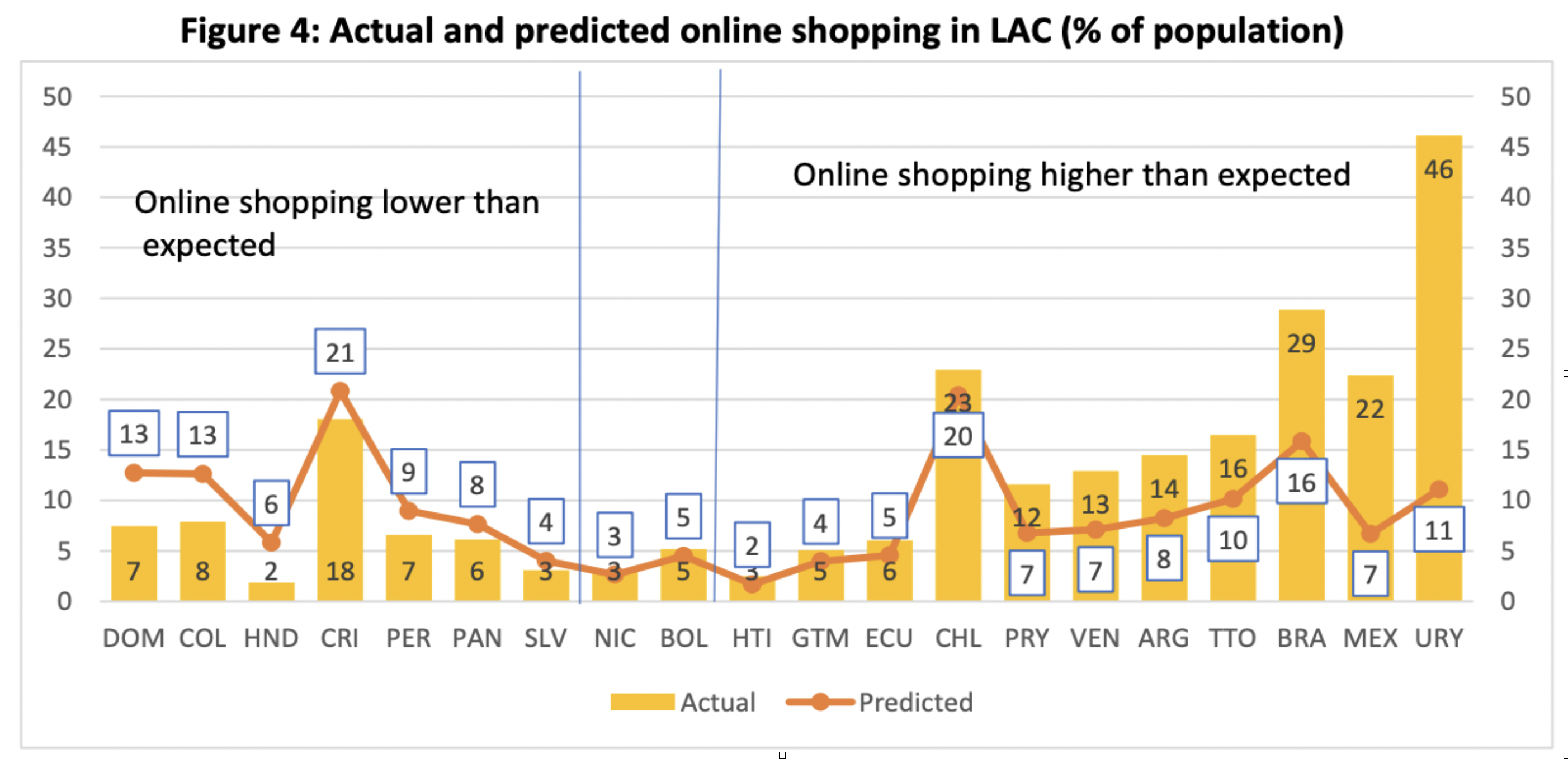MSc Management of Information Systems and Digital Innovation (MISDI) alum Paula Coloane explores how the information systems discipline can address social and structural barriers to digital commerce in emerging markets.
Information and Communication Technologies (ICT) policies for development have long depended on UNCTAD index measures on economic preparedness to support online shopping. The 2020 data for Latin America suggests that the key challenges associated with predicting the success of e-commerce are those related to social and structural barriers, such as having a substantial unbanked population, poor postal infrastructure reliability and a lack of user trust in online methods.
Based on findings from our recent multidisciplinary analysis on the e-commerce ecosystem of Panama City, one of Latin America’s most connected nations, market failures can be overcome by acknowledging these limitations and by having awareness of how to formulate needs and effective solutions to these challenges.
The information systems (IS) discipline has the potential to address the challenge of managing trust in the use of digital methods, especially in emerging markets where the tools used to carry out digital business were mostly rudimentary, if not non-existent, before the eruption of the COVID-19 pandemic.
For instance, entrepreneurs engaged in business-to-business (B2B) transactions highlighted a need for a reliable scheme to digitalise the manual processes involved in the high-value ticketing system of Panama’s logistics sector. Ship operators need a trustworthy digital platform that enables the payment of fees (i.e. gasoline, tax, payments, registrations, serological tests) to suppliers. Despite digitalisation projects being sponsored in Panama since 2017, such as the Cargo Targeting System developed by the World Customs Organisation to enable members to carry out international best practices to manage risk and facilitate international trade, the authorities commonly report failures during their implementation (ECLAC, 2021).
In addition, the footprint of international competitors such as the U.S. giant Amazon has been increasing over time, whilst new entrants and homegrown players have had to overcome the social and structural barriers that prevent them from fully capitalising on the benefits of e-commerce. For instance, in a bid to win over more market share, Amazon has successfully addressed the infrastructure and payment challenges by opening local distribution centres and launching Amazon Cash payment options in Mexico (Oxford Business Group, 2021). These might pose a threat to the creation of new marketplaces and, as a result, microentrepreneurs that produce handicrafts in rural areas are being supported by government-owned platforms, which justify the sponsorship on the reasoning that these have lower barriers of entry and promote effective competition.
Furthermore, most traditional businesses are family owned and there is a significant lack of middle management taking responsibility for the success of digital projects in Latin America. A common practice is to rely on the person most knowledgeable in IT for tasks that relate to the customer experience. These IT employees normally will develop digital solutions by themselves or with the help of a friend advisor, resulting in a poor customer experience and thereby reducing the level of user trust in local digital methods. For this reason, the use of white-label solutions such as Shopify, Magento and Woocommerce are found to be the platforms of choice for new SME’s, mainly because they offer bundled features and integration services at a low cost.
As illustrated by the socio-technical views that guide the study of a phenomenon when a crisis perturbs the status quo, the COVID-19 pandemic heavily influenced participants’ behaviours in digital commerce (Sorensen et al., 2019). For instance, those providers that were able to implement effective delivery systems with the option to pay in cash proved able to retain and attract more users than those with more sophisticated software, but ineffective delivery and payment mechanisms.
These findings showcase how social constructivism influences the successful application of complex IS by providing clarity on the contextual needs that allow for an ecosystem of innovation (Avgerou, 2010). For instance, some countries in Latin America experience a higher e-commerce penetration than their business-to-consumer (B2C) e-commerce index value would predict, due to a leverage on economies of scale. In Mexico, for example, the actual penetration is almost three times higher than the predicted value.
SOURCE: THE UNCTAD B2C E-COMMERCE INDEX 2020
Inevitably, the use of IS to develop market strategies is a series of complex socially embedded actions that urgently need to be understood by decision-makers and leaders looking to reap the benefits of e-commerce in emerging economies.
Notes:
- Connect with Paula Coloane on LinkedIn.
- This blog post gives the views of the author, not the position of Management with Impact blog or the London School of Economics.







This post is very informatic for me. Thanks for sharing this!